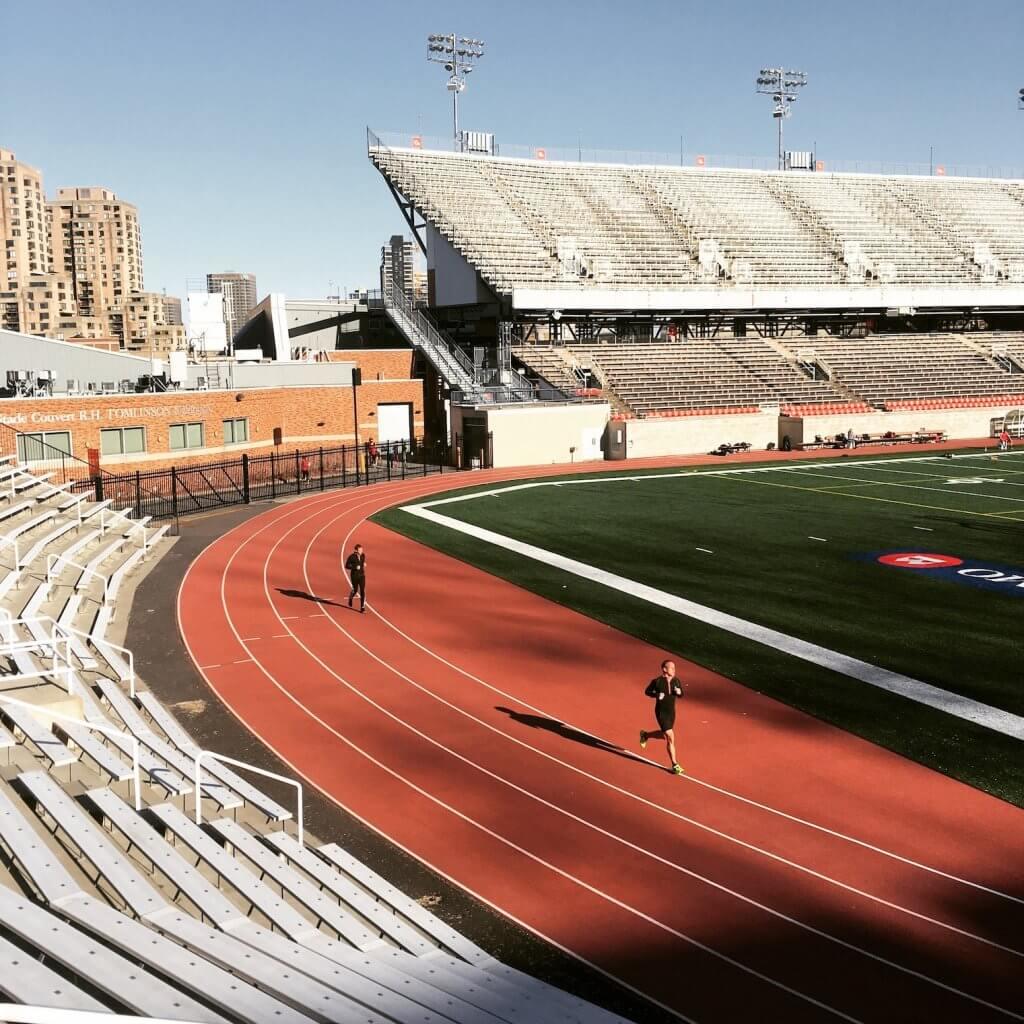Should You Hire A Running Coach?

New runners – or those otherwise uninitiated – are often surprised to discover the full depth and complexity of the sport. After all, on a superficial level, running seems like a pretty natural and straightforward thing. As a result, people tend to jump right in and, unfortunately, make some silly mistakes. Realizing the true potential of the sport then, some runners will seek professional guidance from a coach.
But is this really necessary? Should you hire a running coach? How could one help you? If you do decide to seek out a coach, what should you look for?

Is It Necessary?
Before delving into the potential benefits of working with a coach, the first question to consider is whether or not your individual situation actually warrants bringing in a coach. Casual runners who are making consistent progress without suffering any injuries can typically manage on their own. And that simple statement easily lays out the principles to consider.
Why are you running? Is it just part of your overall training program or are you serious about competing? Really, the core question is this: how much money are you willing to invest in your running?
After some honest athletic self-examination, you might find that you are willing to spend some more money on your performance. The next thing to think about is what you hope to accomplish by hiring a coach. More on the potential benefits of coaching will follow later, however. For now, take time to consider what you want or expect a coach to do for you.

If you find that you can justify spending the money on a coach and that there are specific improvements that you’d like to make, then you should probably start shopping for your coach. But, for the casual runner who is comfortable where they are, solo training is likely doing the trick. For now, at least.
What Can They Do?
Which brings us neatly to the potential benefits of working with a coach. When detailing what a running coach can do for you, it’s very important to point out that coaching does not have to be a long-term thing. It’s very likely you have some specific aspects of your training in mind when reaching out to a coach. Once those factors are taken care of, you can probably give your coach some time off. With that being said, what could a coach do to improve your training?
As mentioned, running is a much more complex sport than many people recognize. Like any other athletic pursuit, proper form is absolutely vital. A qualified running coach can observe your form – including your stride length and foot strike pattern – and correct any imbalances. Not only could this improve your overall performance but this type of athletic audit can help to prevent and even treat certain injuries.

A good coach can also be a powerful motivator to get you through any training ruts you might encounter. While there are lots of different factors that can lead to these dreaded stalls and plateaus, a quality coach will have a host of tools they can use in each situation.
Often, one of the more useful things a coach can do to keep you motivated is to sit down and help you set proper goals – goals that are just challenging enough to give you a boost while not being so hard that you get discouraged. Once those goals are set, your coach will then design a training program specifically to meet your needs.
What To Look For
As you may have noticed, this search isn’t just about finding a running coach; it needs to be a “qualified coach.” Unfortunately, there aren’t any laws requiring specific credentials for running coaches in the United States. Which means that just about anybody with an opinion can claim the title.
When you’re shopping for a coach, then, don’t be afraid to ask about their training, experience and education. Look for certifications from reputable organizations like USA Track & Field or Road Runners Club of America. It’s also worth considering that running coaches can specialize in specific events or training styles. So, think about your goal and look for a coach with the expertize to get you there.
Apart from these somewhat obvious factors, it’s also important to think about something a bit more subtle: your relationship with the coach. Depending on their personality, running coaches can take various motivational approaches – which may or may not work for you. If you’re really going to benefit from coaching, you need to respond well to your coach’s technique and feel comfortable being open and honest about your challenges.

This, unfortunately, can be a tricky thing to suss out and may take some time to figure out. To expedite the process, don’t hesitate to ask for references. Hearing comments from other athletes who have worked with your prospective coach could help you make an informed decision.
Sources
- , USATF Coaches Registry and SafeSport List, Article
- , Find a Coach , Article
Latest Articles
 Is Running on a Treadmill Easier Than Running Outside?Runners have their own preferences, whether it is treadmill running, running outside on the road, or exploring trails. So...
Is Running on a Treadmill Easier Than Running Outside?Runners have their own preferences, whether it is treadmill running, running outside on the road, or exploring trails. So... Is It OK to Use Trail Running Shoes on the Road?While trail running shoes can be used on roads, especially in situations where a runner encounters mixed terrains or pref...
Is It OK to Use Trail Running Shoes on the Road?While trail running shoes can be used on roads, especially in situations where a runner encounters mixed terrains or pref... How to Fix Sore Quads After Running?Rest, ice, gentle stretching, and over-the-counter pain relievers can help soothe sore quads after running. Also, ensure ...
How to Fix Sore Quads After Running?Rest, ice, gentle stretching, and over-the-counter pain relievers can help soothe sore quads after running. Also, ensure ... 10 Fruits With The Most Electrolytes to Replace Sports DrinksThese fruits are high in electrolytes such as potassium, magnesium, and calcium, essential for hydration, muscle function...
10 Fruits With The Most Electrolytes to Replace Sports DrinksThese fruits are high in electrolytes such as potassium, magnesium, and calcium, essential for hydration, muscle function...

